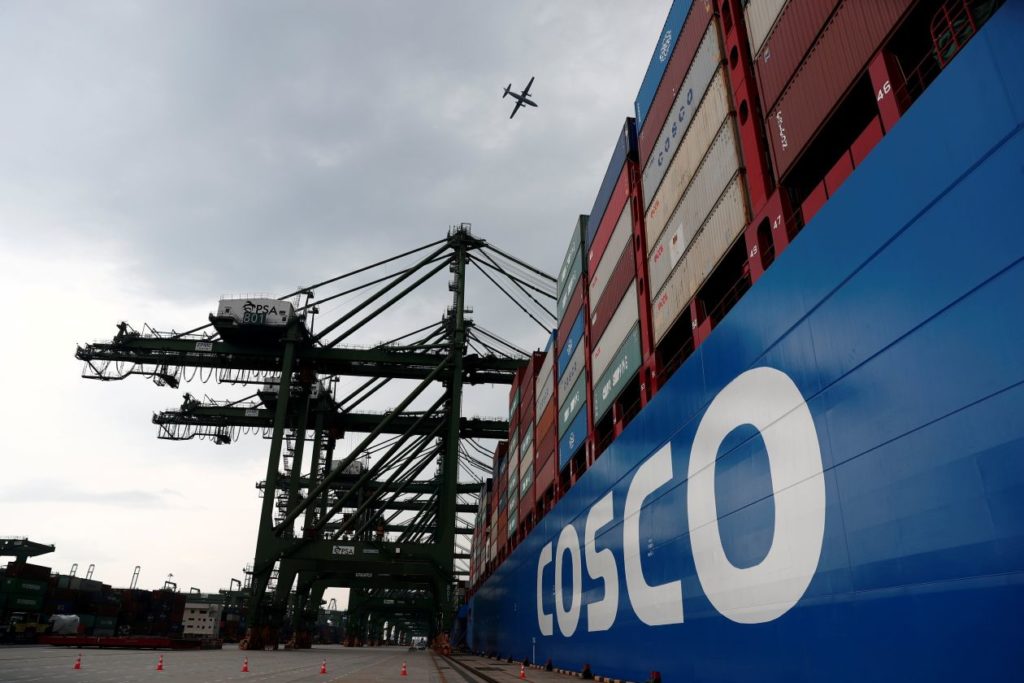
Beijing bought much of Europe in the time it took the U.S. to see its global trade blitz.
Americans see the U.S. in decline and China on the rise, according to a recent Pew Research survey. Sixty percent believe that the U.S. will become less important in the world over the next three decades, and 53% expect that China will claim its spot as the world’s main superpower. It’s tempting to write off predictions of China’s rise as displaced pessimism about America, but there are real signs of the trend.
Last month, in a move that seemed to catch the Trump administration flatfooted, Italy broke ranks with other leading European nations to join China’s Belt and Road infrastructure project, crown jewel of China’s drive for global economic dominance. Italy’s ports, especially Genoa and Trieste, are expected to be major beneficiaries. As Prime Minister Giuseppe Conte said bluntly, economic clout was bound to translate into political influence.
Italy is not alone. In 2016 China’s Cosco, the world’s second-largest shipping company, acquired a 67% stake in Greece’s Piraeus port authority. The Chinese expect that Piraeus will become a major port of entry into the European market, and they are investing to ensure access for their goods. This January Cosco finalized its acquisition of the terminal in Zeebrugge, Belgium’s second-largest port.
Though Italy made headlines by embracing China formally, other European countries are opening to Beijing too. In a Paris meeting following Chinese President Xi Jinping’s triumphal visit to Italy, both German Chancellor Angela Merkel and French President Emmanuel Macron voiced support for increased European participation in Belt and Road and pressed for stronger trade relations with China. Mr. Macron intimated that changes in U.S. policy were bringing Europe and China closer together.
Two decades ago, the U.S. was on top of the world—the unchallenged superpower, the “indispensable nation.” Today scholars are drawing analogies to Britain at the beginning of the 20th century, its global pre-eminence was being eroded by a surge of American economic power. However you look at it, the past 20 years have been a geopolitical catastrophe for the U.S.
In retrospect, we can see that the 9/11 attacks lured America down a self-defeating path. Determined to prevent a repeat, we entered an endless, no-win war in Afghanistan from which we are still trying to disentangle ourselves. Though the war in Iraq ended quickly in what was portrayed as a victory, we inherited a divided and broken country that fell apart as soon as we left, and have spent additional billions of dollars to put back together—not to mention the Americans who gave their lives to reclaim the territory Islamic State seized afterward.
All this was a massive diversion from the most important long-term challenge the U.S. faced—the rise of China. The lack of focus led Washington to make two crucial mistakes. Leaders of both parties dramatically underestimated the impact on the U.S. economy of China’s accession to the World Trade Organization in 2001. Over the next decade, a surge of Chinese imports wiped out millions of manufacturing jobs. Small U.S. manufacturers located outside large cities were hit particularly hard, contributing to the divide between metropolitan and nonmetropolitan areas that increasingly shapes American politics along with our economy.
The second mistake was even more fateful. U.S. leaders assumed that China’s entrance into the global economic system signaled its willingness to play by the rules of market economies, and to amend any trade practices that violated international norms. In this hopeful view, China would get richer, its middle class would expand, and popular demand for social and political liberties would intensify. While China might never democratize fully, it would become a less autocratic society that posed no systemic threat to liberal democracy.
Mr. Xi’s emergence as China’s pre-eminent leader has dispelled these illusions. He believes that the state must play the leading role in economic development—and that economic power should be translated into political and military power. He appears determined to dislodge the U.S. from its long-held perch in East Asian defense and trade.
Mr. Xi is convinced that the “China Model”—economic growth without political liberty—represents a superior alternative to liberal democracy, with applications far beyond China’s borders. He understands that China’s ability to mobilize vast amounts of capital for public purposes is a valuable tool for building global political influence. And now his country owns a tenth of Europe’s port capacity.
The U.S. has wasted 20 years. Finally we see the problem. Is it too late to solve it?
Source: The Wall Street Journal, April 3, 2019 | William A. Gaston